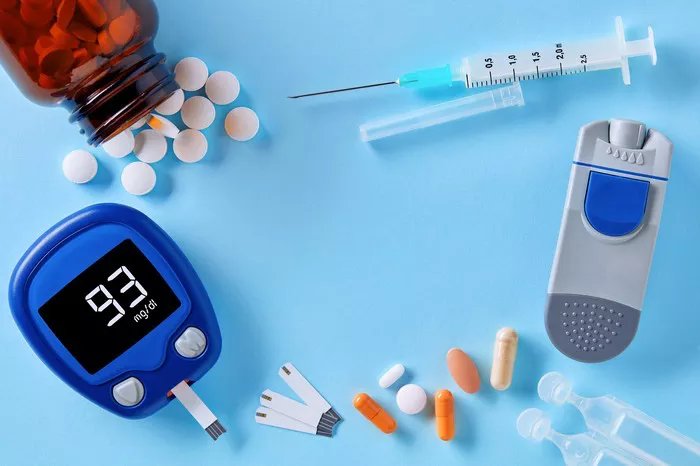Diabetes is a multifaceted condition with various types, each with distinct causes and characteristics. Among the lesser-known forms is type 3c diabetes, also known as pancreatogenic diabetes. Unlike type 1 and type 2 diabetes, type 3c diabetes arises from exocrine pancreatic disorders, including chronic pancreatitis, pancreatic cancer, and other pancreatic diseases. This article delves into the causes, mechanisms, risk factors, and management strategies oftype 3c diabetes, shedding light on this often-overlooked condition.
Overview of Type 3c Diabetes
Definition and Characteristics
Type 3c diabetes is a form of diabetes that results from primary diseases of the exocrine pancreas. It is also referred to as pancreatogenic diabetes, pancreatic diabetes, or secondary diabetes due to pancreatic pathology. The key features of type 3c diabetes include:
Exocrine Pancreatic Dysfunction: The primary cause is damage to the exocrine pancreas, which impairs both digestive enzyme production and insulin secretion.
Insulin Deficiency and Resistance: Patients may experience a combination of insulin deficiency (due to beta-cell damage) and insulin resistance.
Nutrient Malabsorption: Exocrine pancreatic insufficiency can lead to malabsorption of nutrients, complicating diabetes management.
Epidemiology
Type 3c diabetes is relatively rare compared to type 1 and type 2 diabetes. It is estimated to account for approximately 5-10% of all diabetes cases, though it is often underdiagnosed or misdiagnosed as type 2 diabetes.
Causes of Type 3c Diabetes
Chronic Pancreatitis
Pathophysiology:
Chronic pancreatitis is a long-term inflammation of the pancreas that leads to irreversible damage, fibrosis, and loss of both exocrine and endocrine pancreatic tissue. The key mechanisms include:
Inflammation and Fibrosis: Chronic inflammation results in the replacement of functional pancreatic tissue with fibrous tissue, impairing both digestive and insulin-producing functions.
Loss of Beta Cells: The destruction of pancreatic islets, particularly beta cells, leads to insulin deficiency.
Nutrient Malabsorption: Damage to the exocrine pancreas affects the production of digestive enzymes, leading to malabsorption and nutritional deficiencies, which can further complicate diabetes management.
Risk Factors:
Alcohol Abuse: Chronic alcohol consumption is a leading cause of chronic pancreatitis.
Genetic Factors: Mutations in genes such as PRSS1, SPINK1, and CFTR can predispose individuals to chronic pancreatitis.
Gallstones: Gallstone-induced pancreatitis can lead to chronic inflammation and pancreatic damage.
Autoimmune Diseases: Conditions such as autoimmune pancreatitis can cause chronic inflammation and fibrosis of the pancreas.
Pancreatic Cancer
Pathophysiology:
Pancreatic cancer, particularly adenocarcinoma, can directly affect the pancreatic tissue and lead to type 3c diabetes. The mechanisms include:
Tumor Infiltration: Tumor growth can infiltrate and destroy pancreatic islets, leading to insulin deficiency.
Surgical Resection: Surgical removal of pancreatic tumors can result in loss of pancreatic tissue and subsequent diabetes.
Inflammation and Fibrosis: Cancer-related inflammation and fibrosis can impair both exocrine and endocrine functions of the pancreas.
Risk Factors:
Age: The risk of pancreatic cancer increases with age.
Smoking: Tobacco use is a significant risk factor for pancreatic cancer.
Family History: A family history of pancreatic cancer or genetic syndromes such as BRCA mutations can increase risk.
Chronic Pancreatitis: Long-standing chronic pancreatitis can predispose individuals to pancreatic cancer.
Pancreatic Surgery
Pathophysiology:
Surgical procedures involving the pancreas, such as pancreatectomy (partial or total removal of the pancreas), can lead to type 3c diabetes. The mechanisms include:
Loss of Pancreatic Tissue: Surgical removal of pancreatic tissue reduces the number of insulin-producing beta cells, leading to insulin deficiency.
Exocrine Insufficiency: Removal of exocrine tissue affects the production of digestive enzymes, leading to malabsorption and nutritional deficiencies.
Indications for Surgery:
Pancreatic Cancer: Surgical resection of tumors.
Chronic Pancreatitis: Surgery to relieve pain or treat complications.
Trauma: Surgical intervention following pancreatic injury.
Cystic Fibrosis
Pathophysiology:
Cystic fibrosis is a genetic disorder that affects the exocrine glands, including the pancreas. The key mechanisms include:
Thick Mucus Secretion: Thick, sticky mucus obstructs pancreatic ducts, leading to inflammation, fibrosis, and destruction of pancreatic tissue.
Pancreatic Insufficiency: Impaired exocrine function results in nutrient malabsorption and secondary diabetes.
Genetic Basis:
CFTR Gene Mutations: Mutations in the CFTR gene lead to defective chloride channels, causing the thick mucus characteristic of cystic fibrosis.
Other Causes
Hemochromatosis: Excess iron deposition in the pancreas can lead to damage and diabetes.
Pancreatic Trauma: Physical injury to the pancreas can result in tissue damage and diabetes.
Infections: Some infections, such as mumps or hepatitis, can cause pancreatitis and subsequent diabetes.
Diagnosis of Type 3c Diabetes
Clinical Features
Symptoms of Pancreatic Disease: Abdominal pain, steatorrhea (fatty stools), and weight loss.
Diabetes Symptoms: Polyuria (frequent urination), polydipsia (excessive thirst), and polyphagia (increased hunger).
Diagnostic Criteria
History of Pancreatic Disease: A documented history of chronic pancreatitis, pancreatic cancer, cystic fibrosis, or pancreatic surgery.
Pancreatic Function Tests: Tests to assess exocrine pancreatic function, such as fecal elastase or direct pancreatic function tests.
Imaging Studies: CT scans, MRI, or endoscopic ultrasound to evaluate pancreatic structure and pathology.
Blood Tests: Measuring fasting blood glucose, HbA1c, and insulin levels.
Management of Type 3c Diabetes
Glycemic Control
Insulin Therapy: Most patients with type 3c diabetes require insulin therapy due to insulin deficiency.
Oral Hypoglycemic Agents: In some cases, medications like metformin may be used to improve insulin sensitivity.
Nutritional Management
Enzyme Replacement Therapy: Pancreatic enzyme supplements to aid digestion and nutrient absorption.
Dietary Modifications: High-calorie, nutrient-dense diets to counteract malabsorption and weight loss.
Vitamin and Mineral Supplements: Supplementation of fat-soluble vitamins (A, D, E, K) and other nutrients.
Monitoring and Follow-Up
Regular Blood Glucose Monitoring: Frequent monitoring of blood glucose levels to adjust insulin dosages.
Nutritional Status Assessment: Regular evaluation of nutritional status and body weight.
Management of Complications: Monitoring and managing complications such as diabetic neuropathy, retinopathy, and cardiovascular disease.
See also: Flash VS Continuous Glucose Monitoring : What’s the Difference
Conclusion
Type 3c diabetes, or pancreatogenic diabetes, is a form of diabetes resulting from primary diseases of the exocrine pancreas. Chronic pancreatitis, pancreatic cancer, pancreatic surgery, cystic fibrosis, and other conditions can lead to the development of this type of diabetes. Understanding the causes and mechanisms of type 3c diabetes is crucial for accurate diagnosis and effective management. While type 3c diabetes presents unique challenges, appropriate glycemic control, nutritional management, and regular monitoring can help improve outcomes and quality of life for affected individuals.
Related topics:
Is Type 2 Diabetes Hyperglycemia or Hypoglycemia?



























